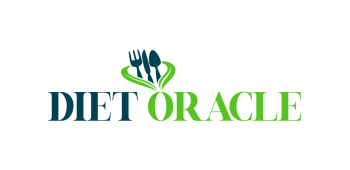Plant-based diets have become increasingly popular in recent years, and for good reason. Not only are they great for the environment, but they can also improve your health and well-being. If you’re thinking of adopting a plant-based diet, this comprehensive guide will provide you with all the information you need to get started.
What is a Plant-Based Diet?

A plant-based diet is one that focuses on foods derived from plants, such as fruits, vegetables, whole grains, legumes, nuts, and seeds. This type of diet typically excludes or limits animal products like meat, dairy, and eggs. Some people on a plant-based diet may still consume small amounts of these products, while others may avoid them completely.
Why Choose a Plant-Based Diet?
There are many reasons why someone might choose to follow a plant-based diet. Here are just a few:
- Improved health: Plant-based diets have been shown to lower the risk of chronic diseases like heart disease, diabetes, and certain types of cancer.
- Environmental benefits: Producing animal products requires much more land, water, and other resources than producing plant-based foods. Choosing a plant-based diet can help reduce your environmental impact.
- Compassion for animals: Many people choose a plant-based diet because they don’t want to contribute to animal suffering.
Getting Started with a Plant-Based Diet
If you’re new to plant-based eating, it can be helpful to start slowly and make gradual changes to your diet. Here are some tips to get you started:
- Focus on whole foods: Choose whole grains, fresh fruits and vegetables, and legumes as the foundation of your diet.
- Experiment with new recipes: There are countless delicious plant-based recipes available online. Try out a few new recipes each week to keep things interesting.
- Find plant-based alternatives: There are many plant-based alternatives to meat, dairy, and eggs available in grocery stores. Experiment with these to find ones you enjoy.
- Get enough protein: Many plant-based foods are rich in protein, such as beans, lentils, tofu, and tempeh. Make sure you’re getting enough protein to meet your needs.
- Stay informed: Keep up-to-date with the latest research and information about plant-based eating to ensure you’re getting all the nutrients you need.
Potential Nutrient Deficiencies on a Plant-Based Diet
While a well-planned plant-based diet can be incredibly healthy, there are some nutrients that can be harder to obtain from a plant-based diet. These include:
- Vitamin B12: This vitamin is primarily found in animal products, so it’s important for vegans to take a supplement or consume fortified foods.
- Iron: Plant-based sources of iron are less easily absorbed by the body than animal sources, so it’s important to consume iron-rich foods like beans, lentils, and dark leafy greens.
- Calcium: Dairy products are a major source of calcium, but many plant-based foods like leafy greens, tofu, and fortified non-dairy milks are also good sources.
- Omega-3 fatty acids: These essential fatty acids are primarily found in fatty fish, but can also be obtained from plant-based sources like flaxseeds, chia seeds, and walnuts.
The Bottom Line
A plant-based diet can be a great choice for your health, the environment, and animal welfare. By focusing on whole, plant-based foods and paying attention to nutrient needs, you can thrive on a plant-based diet. So why not give it a try?

